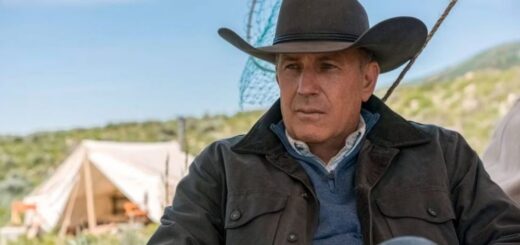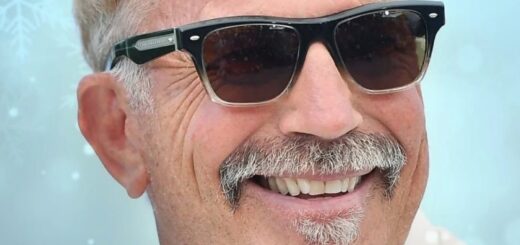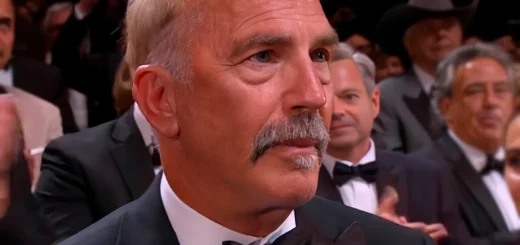10 Western Dramas That Left Fans Feeling Cheated
10 Western Shows That Let Their Fans Down
Western television has long offered viewers a ride into sweeping landscapes where morality, violence, and survival collide. The best Westerns are built on high stakes and iconic archetypes—loners, lawmen, outlaws, and legends. But when a Western stumbles, it doesn’t just falter—it leaves audiences stranded, with broken promises echoing across the plains.
Over the last two decades, both traditional and revisionist Western series have captured viewers’ imaginations—only to squander that goodwill. Some were canceled before their stories could fully unfold. Others lost direction due to clunky plotting, poor character choices, or corporate interference. These ten shows serve as a reminder: even in TV’s golden age, the frontier is as unforgiving as ever.
Deadwood / Deadwood: The Movie
Though now considered a classic, Deadwood’s abrupt cancellation in 2006 left fans stunned. HBO pulled the plug after just three seasons, cutting off key story arcs and leaving the show’s brutal world unresolved. The 2019 follow-up film tried to offer closure—but it arrived 13 years too late, and not everyone was satisfied.
Critics noted that the movie softened once-edgy characters like Al Swearengen and wrapped up conflicts a little too neatly. What fans had hoped would be a raw, unflinching final act instead felt like a mournful compromise.
The Mandalorian
Season 1 and 2 of The Mandalorian were near-perfect examples of how to do a space Western right. The show struck a balance between character-driven storytelling and Star Wars mythology, earning glowing audience and critic scores. Then came Season 3.
The focus shifted from Din Djarin to setting up future spin-offs, turning tight character arcs into meandering brand-building exercises. Audience ratings dropped dramatically, with many fans feeling like the soul of the show had been traded for corporate synergy.
Strange Empire
CBC’s Strange Empire promised something rare: a gritty, female-led Western with Indigenous representation. Its first season was praised for bold storytelling and historical themes, but despite its promise, the network canceled it after just one season.
Key arcs, like Kat Loving’s fight for justice, were left unresolved, and the cancellation felt like a betrayal of both the show’s ambition and its audience. Poor promotion and lack of support only added to the sense that CBC never gave Strange Empire a real shot.
Into the Badlands
AMC’s Into the Badlands wasn’t a typical Western—it fused martial arts, dystopia, and frontier aesthetics into something refreshingly unique. While critics were mixed early on, audiences embraced its bold visuals and action.
Yet the show was abruptly canceled after three seasons. The finale teased major developments that would never be explored, and fan-favorite characters like MK were left hanging. Despite its flaws, Into the Badlands was clearly building toward something bigger—and never got the chance to deliver.
The Son
With Pierce Brosnan at the helm, The Son was marketed as AMC’s next big Western saga. But Season 1 struggled with sluggish pacing and thin character development, earning a lackluster 52% critic score on Rotten Tomatoes.
Despite improvement in Season 2 and strong audience support (88% on Rotten Tomatoes), the show ended after just two seasons. While its story technically concluded, many fans felt it had untapped potential and deserved more time to become the epic it aspired to be.
Godless
Netflix’s Godless was pitched as a female-driven Western set in a town run by widows. That premise alone generated buzz for a genre shake-up. But when the series premiered, it told a different story—one dominated by male characters and familiar tropes.
Critics pointed out that, despite the marketing, the show centered around the rivalry between two men. With only one season planned from the start, Godless had no opportunity to course-correct. For many, it felt like a missed opportunity to truly redefine the genre.
Hell on Wheels
AMC’s Hell on Wheels debuted with high hopes, positioned as a gritty tale of post–Civil War ambition and revenge. Though it ran for five seasons, the show struggled with consistency from early on.
Strong performances couldn’t save Hell on Wheels from meandering storylines and uneven pacing. Despite its thematic potential, it often felt like it was stalling rather than building toward something grand. What should’ve been a gripping saga ended as a slow, disappointing ride.
Walker
The Walker reboot traded in the hard-hitting action of Chuck Norris’ Walker, Texas Ranger for family melodrama. Fans expecting a modern, rugged update instead got a show bogged down in domestic subplots.
Season 1 earned a dismal 32% critic score, and although it lasted four seasons, the cancellation seemed inevitable. Even lead actor Jared Padalecki criticized The CW’s shifting priorities. For longtime fans, Walker felt less like a reboot and more like a betrayal of the original’s legacy.
Yellowstone
Yellowstone became a cultural phenomenon, largely thanks to Kevin Costner’s commanding presence as John Dutton. But by Season 5, the cracks began to show. Behind-the-scenes tensions led to Costner’s early exit, and the show struggled to maintain its narrative momentum.
Without its central figure, storylines became rushed or convoluted. The failure to give Dutton a proper send-off left fans frustrated, especially after years of buildup. While spin-offs like 1883 and 1923 carry the torch, the flagship series lost its way just when it mattered most.
Westworld
Westworld debuted as one of the most ambitious genre shows in years—a cerebral sci-fi Western that invited fans into a labyrinth of AI, identity, and free will. But each season veered further from its strengths.
By Season 3, critics and fans alike were calling out the show’s loss of focus and bloated plotting. Beloved characters like Dolores and Maeve were reduced to plot devices. HBO eventually pulled the plug after Season 4, and in a final blow, removed the entire series from its streaming platforms. What began as prestige TV ended in silence.


